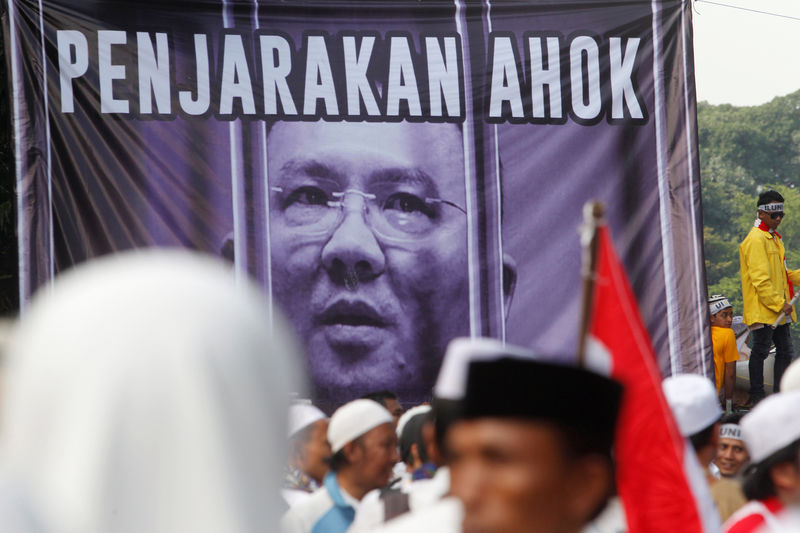By Bernadette Christina Munthe
JAKARTA (Reuters) - The governor of Indonesia's capital Jakarta, the first ethnic Chinese and Christian in the job, is losing support in his bid for reelection as allegations that he insulted the Koran increasingly put off Muslim voters.
An opinion poll published on Thursday showed support for Basuki Tjahaja Purnama, also known as "Ahok", plunged from 60 percent in March to 25 percent in the latest survey.
Over 100,000 Muslims marched through Jakarta last week to demand his resignation and urge voters not to re-elect him in February, raising concerns over the rise of hardline Islamists in the world's largest Muslim-majority nation.
Last month's survey by pollster Lingkaran Survei Indonesia, taken before the protest, showed him at 31 percent support.
"The controversy over the comments on the Koran is a factor affecting his electability and resistance is rising against a non-Muslim leader," said Adjie Alfaraby of LSI.
The vast majority of Indonesians practice a moderate form of Islam and faith is not often a determining factor in elections, especially in a cosmopolitan city like Jakarta. But the poll showed changing opinions among the city's Muslim voters.
"There would be religious sentiment in the election, but it wouldn't be so strong were it not for the (blasphemy) case," Alfaraby said. "We are seeing less rational voters, and more voters choosing based on other factors."
Muslim groups have accused Purnama of blasphemy after he said his opponents had deceived voters by attacking him using a verse from the Koran. Police are investigating the case against the governor, who has apologised for the comments.
But Purnama, a Protestant known as a tough reformer with an abrasive tongue, still remains ahead of his rivals - former education minister Anies Baswedan, and Agus Yudhoyono, the son of Indonesia's previous president.
A third of voters remain undecided.
Governing Jakarta, a city of 10 million, is often seen as a stepping stone to higher political office. Purnama took over the governorship in 2014, when his then-boss, Joko Widodo, stepped down to contest and win the presidency.

Census data show only about one percent of Indonesians are ethnic Chinese and about seven percent are Protestants.